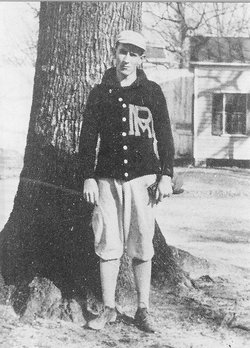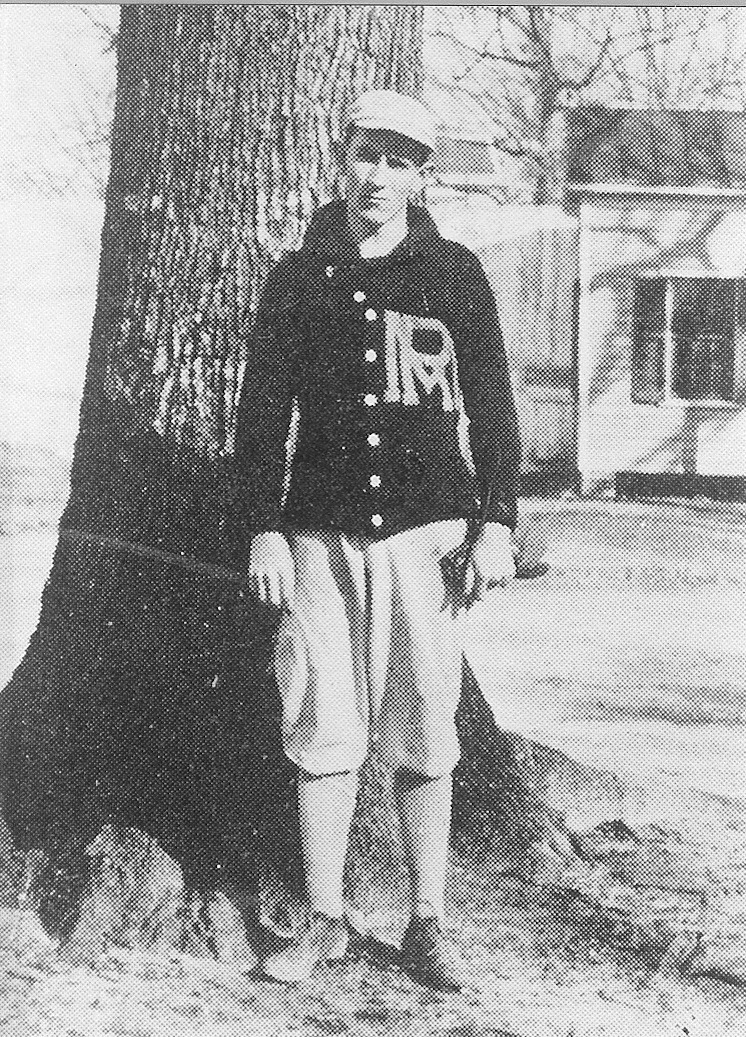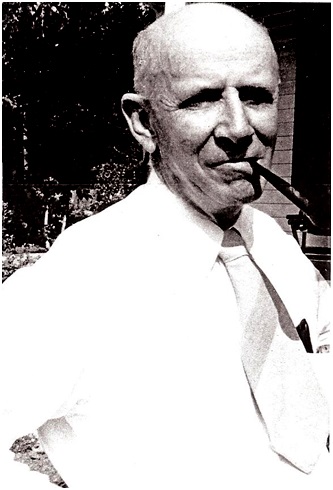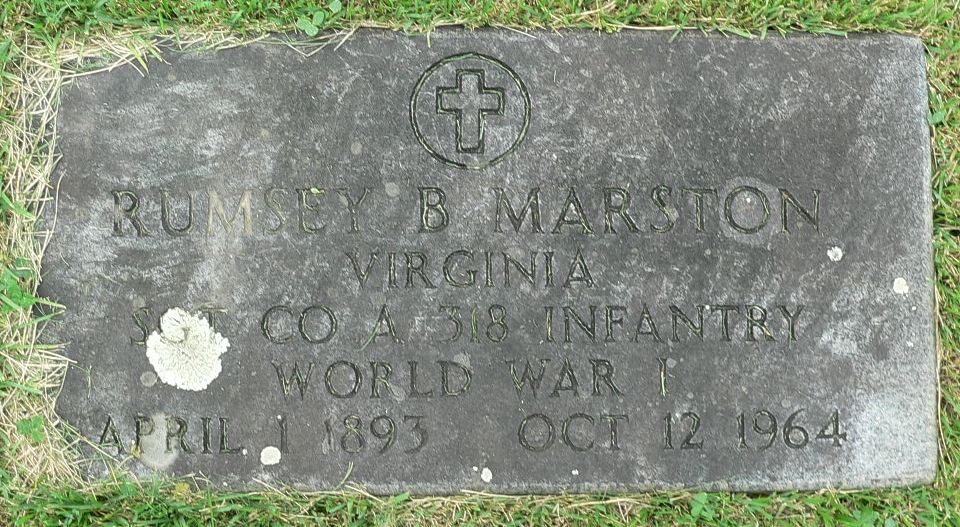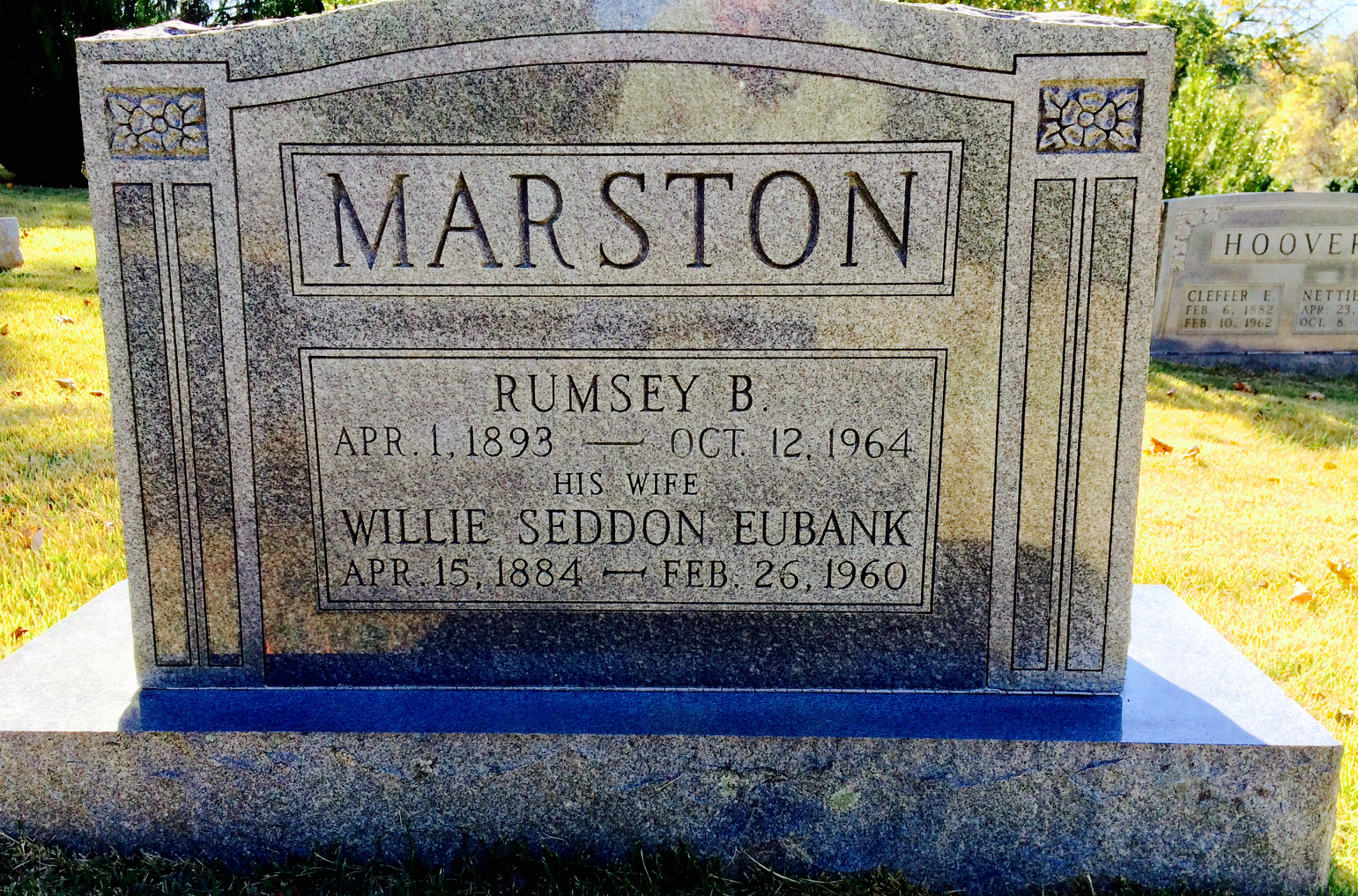During his lifetime, Rumsey B. Marston was widely known in education.
He first attracted the attention of educators when he originated, with the help of parents, an innovative curriculum in Sistersville, W. Va., that permitted high school students to accumulate as many classroom units as they wanted beyond the required l6. From there followed appointments as superintendent of Morgantown and Huntington, W.Va., schools, and wider recognition.
In l937 he became executive secretary of the West Virginia State Education Association, in which capacity he served six years. During his tenure, the Legislature adopted the state's first pension system for teachers making it possible for them to receive $50 a month. He fought successfully to raise teachers' salaries.
In l943 Rumsey was one of three men asked to come on a loan basis by the National Education Association to work on special legislation. From that trio he was selected to become the first director of its new Legislative and Federal Relations Division, a position he assumed in l944 and held for eight years. In l95l he was named director of its Membership Division. Under his leadership membership increased more than 50 per cent, from 465,000 in l95l to 704,000 in l957.
"The strength of the association today is in large part due to his tact, energy, devotion and vision," the NEA Executive Secretary William G. Carr said upon his retirement in l958.
A man of high energy and hard work, known simply by his associates as RB, Rumsey was born in the Shenandoah Valley. When he was ll he moved from Edinburgh to Woodstock, Va., where he graduated in the second class of its new high school. It included four students, two boys and two girls. He then entered Randolph-Macon Men's College in Ashland, Va., where he received his bachelor's degree in l9l6. He missed a year after accidentally inhaling a dose of chlorine gas during a laboratory experiment, an accident that affected his lungs and necessitated much bed rest.
Red headed and spirited, he led an attack on the Randolph-Macon hazing system and moved into a position of leadership. He was president of his junior and senior classes and of Franklin Hall; he also served as president of the student government. Wanting to become a professional baseball player, he captained the baseball team in l9l4 and served on its team throughout his college years. His style of pitching won him the title of "The Puzzler." As he did in high school, he also played tennis.
Rumsey was active with college publications, serving as associate editor of its monthly, as business editor of the weekly, assistant editor of the annual and as a member of the college's Board of Publications. He received the Bennett Historical medal in l9l3-l4 and the monthly fiction award for l9l4-l5. To earn money, he helped manage a boarding house and operated, with the service of an assistant, the only cleaning and pressing club on the campus.
The week after he graduated, Rumsey was recommended to be principal of the Ashland High School and served there until he was inducted into the Army. At Ashland High School, one of his teachers, Willie Seddon Eubank, he later married. In the Army he became a sergeant and served in the 80th Division, Company A, 3l8th Infantry, fighting at the front in the Argonne. He was discharged on August l, l9l9.
After the Armistice he was selected from his regiment to receive a scholarship awarded under an Army program to a British college and attended Trinity College, University of Dublin, in l9l8-l9 studying the education of the British Isles and visiting school systems in Glasgow and Edinburgh.
In l9l9 he became principal of the Sistersville High School and the following year was named superintendent of Sistersville schools. During that time he successfully pushed through a bond issue to erect a new junior high and took steps to attract more highly qualified teachers.
In l932 he became superintendent of schools in Morgantown and the following year, with the creation of the county school unit, assistant superintendent of Monongahela County schools with no change in duties. In l934 he left to be superintendent of schools in Huntington. He was called to there to clean up one of the most highly politicized school systems in the state. All the principals were Republicans; all the janitors Democrats.
As executive secretary of the State Education Association, he estimated he crossed West Virginia 28,000 miles a year, growing to know superintendents by their first names and being seriously considered as the state superintendent, a position he did not want, in part because it was an elected post. He loved his responsibilities with the association. "I worked like a slave and lived in glory," he wrote of those years.
Meanwhile, in l924, he earned his master's degree from Teachers College, Columbia University, and also took additional work at the University of West Virginia, where he taught the summer of l93l. While living in Sistersville, he also taught during the summer at West Liberty State College.
In Morgantown, he was president of the Northwestern Teachers Round Table, president of the Monongahela Valley Teachers Round Table, and a member of the executive, special and standing committees of the State Education Association as well as chairman of the association's resolutions committee.
In Huntington, he was active in church and civic affairs, with the Boy Schools, a member of the city's flood committee, Chamber of Commerce and Red Cross. In l935 Rumsey was president of the Southwestern Teachers Round Table and in l937-38 president of the West Virgnia Association of Public School Superintendents. He was a contributor to many professional journals and other periodics. In Huntington he frequently ghost-wrote editorials on school issues for The Dispatch.
He was a kind man but one who loved a good fight. He made the struggle to improve public schools his own battle ground. Rumsey possessed a strong sense of justice. A Democrat and a liberal, socially progressive in race relationships, he followed elections and, after the family moved to Washington, during the World War II days, spent hours reading The Washington Post and before its demise, the old Washington Star.
Gifted in music and possessing a strong sense of rhythm, able to play by ear, he had only one formal year of training in piano but developed technique sufficient to enable him to play Chopin's "The Militaire Polonaise," which his children always associated with him. He loved playing songs with people gathered around the piano, endowing "Mean of Harlech" with a triumphal ring. On summer car trips he taught his children--Jane, Edgar, Rebecca and Alan--to sing such World War I songs as "Pack Up Your Troubles in Your Old Kit Bag." For his children and grandchildren, he made up stories about a fairy named Pinky Blue and the butterfly, Ezra, and the Rock Candy Mountain.
After the death in l960 following a long illness of his wife, Willie Eubank, whom he called Billy, he married Eleanor Elliott Howe, a physician's widow, in l962. Already ill with cancer--his pipe was seldom far from him--he died October l2, l964, at their home in Thurmont, Md. He is buried beside his first wife at the Massanutten Cemetery in Woodstock, Va.
During his lifetime, Rumsey B. Marston was widely known in education.
He first attracted the attention of educators when he originated, with the help of parents, an innovative curriculum in Sistersville, W. Va., that permitted high school students to accumulate as many classroom units as they wanted beyond the required l6. From there followed appointments as superintendent of Morgantown and Huntington, W.Va., schools, and wider recognition.
In l937 he became executive secretary of the West Virginia State Education Association, in which capacity he served six years. During his tenure, the Legislature adopted the state's first pension system for teachers making it possible for them to receive $50 a month. He fought successfully to raise teachers' salaries.
In l943 Rumsey was one of three men asked to come on a loan basis by the National Education Association to work on special legislation. From that trio he was selected to become the first director of its new Legislative and Federal Relations Division, a position he assumed in l944 and held for eight years. In l95l he was named director of its Membership Division. Under his leadership membership increased more than 50 per cent, from 465,000 in l95l to 704,000 in l957.
"The strength of the association today is in large part due to his tact, energy, devotion and vision," the NEA Executive Secretary William G. Carr said upon his retirement in l958.
A man of high energy and hard work, known simply by his associates as RB, Rumsey was born in the Shenandoah Valley. When he was ll he moved from Edinburgh to Woodstock, Va., where he graduated in the second class of its new high school. It included four students, two boys and two girls. He then entered Randolph-Macon Men's College in Ashland, Va., where he received his bachelor's degree in l9l6. He missed a year after accidentally inhaling a dose of chlorine gas during a laboratory experiment, an accident that affected his lungs and necessitated much bed rest.
Red headed and spirited, he led an attack on the Randolph-Macon hazing system and moved into a position of leadership. He was president of his junior and senior classes and of Franklin Hall; he also served as president of the student government. Wanting to become a professional baseball player, he captained the baseball team in l9l4 and served on its team throughout his college years. His style of pitching won him the title of "The Puzzler." As he did in high school, he also played tennis.
Rumsey was active with college publications, serving as associate editor of its monthly, as business editor of the weekly, assistant editor of the annual and as a member of the college's Board of Publications. He received the Bennett Historical medal in l9l3-l4 and the monthly fiction award for l9l4-l5. To earn money, he helped manage a boarding house and operated, with the service of an assistant, the only cleaning and pressing club on the campus.
The week after he graduated, Rumsey was recommended to be principal of the Ashland High School and served there until he was inducted into the Army. At Ashland High School, one of his teachers, Willie Seddon Eubank, he later married. In the Army he became a sergeant and served in the 80th Division, Company A, 3l8th Infantry, fighting at the front in the Argonne. He was discharged on August l, l9l9.
After the Armistice he was selected from his regiment to receive a scholarship awarded under an Army program to a British college and attended Trinity College, University of Dublin, in l9l8-l9 studying the education of the British Isles and visiting school systems in Glasgow and Edinburgh.
In l9l9 he became principal of the Sistersville High School and the following year was named superintendent of Sistersville schools. During that time he successfully pushed through a bond issue to erect a new junior high and took steps to attract more highly qualified teachers.
In l932 he became superintendent of schools in Morgantown and the following year, with the creation of the county school unit, assistant superintendent of Monongahela County schools with no change in duties. In l934 he left to be superintendent of schools in Huntington. He was called to there to clean up one of the most highly politicized school systems in the state. All the principals were Republicans; all the janitors Democrats.
As executive secretary of the State Education Association, he estimated he crossed West Virginia 28,000 miles a year, growing to know superintendents by their first names and being seriously considered as the state superintendent, a position he did not want, in part because it was an elected post. He loved his responsibilities with the association. "I worked like a slave and lived in glory," he wrote of those years.
Meanwhile, in l924, he earned his master's degree from Teachers College, Columbia University, and also took additional work at the University of West Virginia, where he taught the summer of l93l. While living in Sistersville, he also taught during the summer at West Liberty State College.
In Morgantown, he was president of the Northwestern Teachers Round Table, president of the Monongahela Valley Teachers Round Table, and a member of the executive, special and standing committees of the State Education Association as well as chairman of the association's resolutions committee.
In Huntington, he was active in church and civic affairs, with the Boy Schools, a member of the city's flood committee, Chamber of Commerce and Red Cross. In l935 Rumsey was president of the Southwestern Teachers Round Table and in l937-38 president of the West Virgnia Association of Public School Superintendents. He was a contributor to many professional journals and other periodics. In Huntington he frequently ghost-wrote editorials on school issues for The Dispatch.
He was a kind man but one who loved a good fight. He made the struggle to improve public schools his own battle ground. Rumsey possessed a strong sense of justice. A Democrat and a liberal, socially progressive in race relationships, he followed elections and, after the family moved to Washington, during the World War II days, spent hours reading The Washington Post and before its demise, the old Washington Star.
Gifted in music and possessing a strong sense of rhythm, able to play by ear, he had only one formal year of training in piano but developed technique sufficient to enable him to play Chopin's "The Militaire Polonaise," which his children always associated with him. He loved playing songs with people gathered around the piano, endowing "Mean of Harlech" with a triumphal ring. On summer car trips he taught his children--Jane, Edgar, Rebecca and Alan--to sing such World War I songs as "Pack Up Your Troubles in Your Old Kit Bag." For his children and grandchildren, he made up stories about a fairy named Pinky Blue and the butterfly, Ezra, and the Rock Candy Mountain.
After the death in l960 following a long illness of his wife, Willie Eubank, whom he called Billy, he married Eleanor Elliott Howe, a physician's widow, in l962. Already ill with cancer--his pipe was seldom far from him--he died October l2, l964, at their home in Thurmont, Md. He is buried beside his first wife at the Massanutten Cemetery in Woodstock, Va.
Family Members
Sponsored by Ancestry
Advertisement
Advertisement
